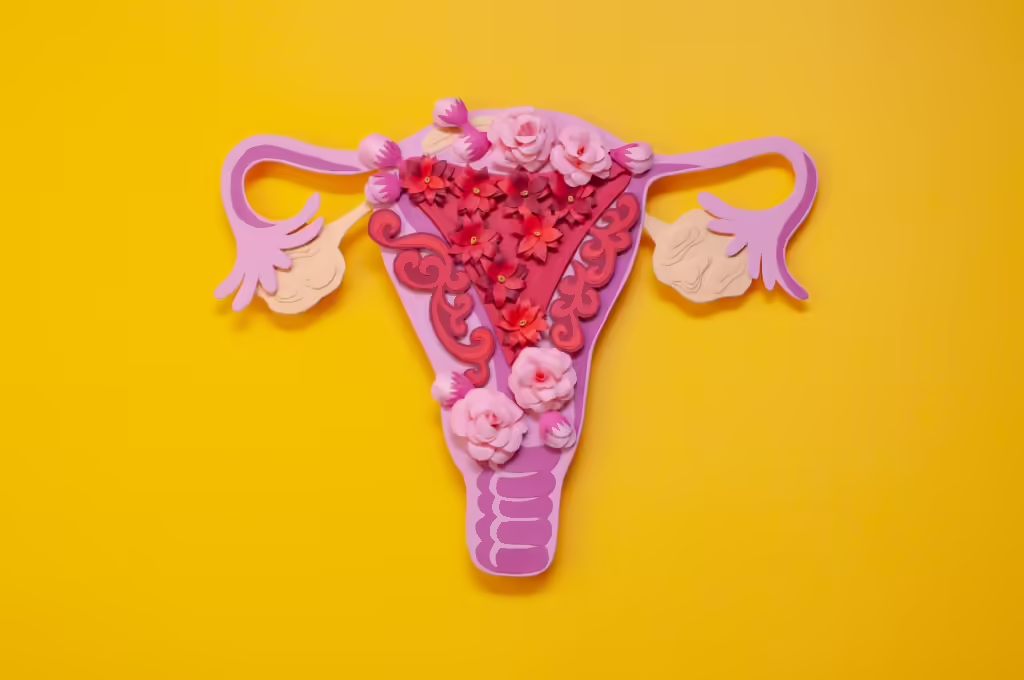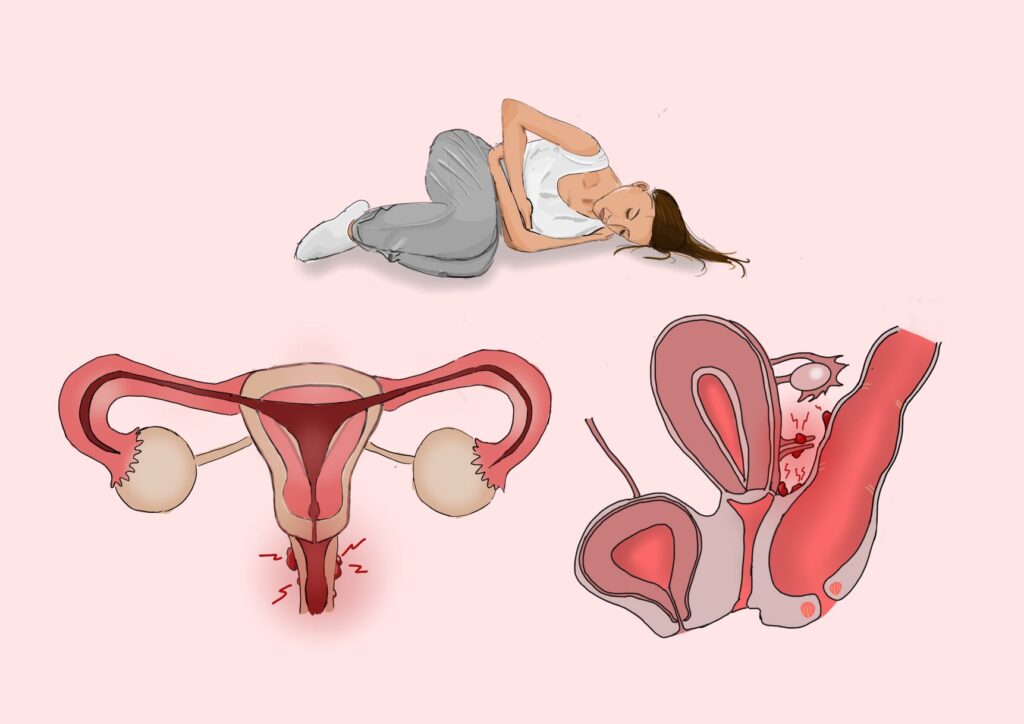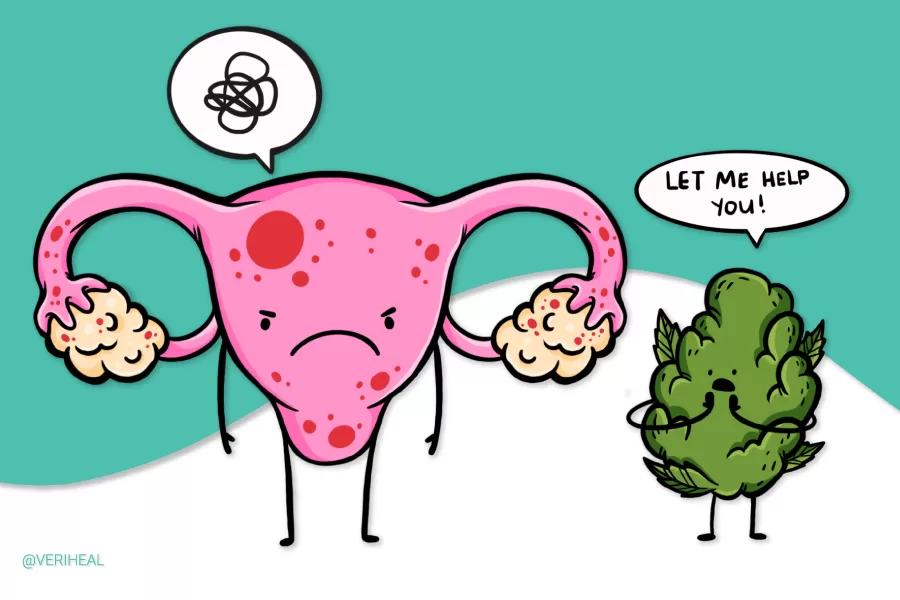
Endometriosis, a chronic and often debilitating condition affecting approximately 10% of reproductive-age women, is characterized by the presence of endometrial-like tissue outside the uterus, leading to severe pain and various complications. As research into alternative treatments accelerates, the potential application of psychedelics has emerged as a promising avenue for relief. This article explores the intersection of psychedelics Cannabis (RSO) and endometriosis, focusing on the benefits that these psychoactive substances offer for managing symptoms, understanding pain, and improving mental health.
The Condition Explained

1. **Chronic Pelvic Pain**: The most common symptom, often exacerbated during menstruation.
2. **Pain During Intercourse**: Many women with endometriosis experience discomfort during or after sexual activity.
3. **Pain with Bowel Movements or Urination**: This can occur especially during menstrual periods.
4. **Excessive Bleeding**: Heavy periods and bleeding between cycles are common among sufferers.
5. **Infertility**: Many women with endometriosis struggle with conceiving, leading to emotional distress.
The exact causes of endometriosis remain unclear, but potential factors include genetic predisposition, hormonal influences, and immune system disorders. Traditional treatment options are available but often fall short of providing adequate relief.

The Role of Psychedelics And Cannabis (RSO)
Psychedelics and Pain Perception
Recent research has revealed that psychedelics—such as psilocybin (found in magic mushrooms) and LSD—can alter pain perception. These substances function by interacting with serotonin receptors in the brain, which play a crucial role in mood regulation and the perception of pain. By modulating these pathways, psychedelics help patients reframe their experiences of chronic pain and facilitate a greater sense of control.
Mental Health Benefits
Endometriosis is often accompanied by mental health challenges, including anxiety and depression. Evidence suggests that psychedelics can promote lasting improvements in mental health, providing benefits such as:
– **Reduced Anxiety and Depression**: Psychedelics have shown promise in clinical trials as effective treatments for anxiety and depression.
– **Enhanced Emotional Resilience**: Users often report heightened emotional awareness and the ability to process traumatic experiences effectively.
When combined with psychotherapy, psychedelics may offer an innovative approach to mental health treatment for individuals suffering from endometriosis.

Cannabis (RSO) as a Therapeutic Option
Cannabis is known for its complex interaction with the body’s endocannabinoid system, a regulatory system involved in various physiological processes, including pain perception, mood, and inflammation. Research indicates that cannabis may provide relief for endometriosis symptoms through several mechanisms:
Pain Management
One of the most significant benefits of cannabis is its analgesic properties. Cannabinoids such as THC (tetrahydrocannabinol) and CBD (cannabidiol) appear to modulate pain perception effectively. Studies suggest that:
– THC activates the brain’s pain-relief pathways, offering immediate relief for acute pain.
Reducing Inflammation
Endometriosis is marked by inflammation in the pelvic region. Cannabis(RSO) helps mitigate this inflammation through its anti-inflammatory properties. Several research studies support this, showing that cannabinoids can:
– Decrease the release of pro-inflammatory cytokines.
– Modulate immune cell function to reduce inflammation.
Lowering inflammation can lead to decreased pain and improved quality of life for those with endometriosis.
Intervention for Other Symptoms
Cannabis is also being explored for its potential to alleviate other symptoms related to endometriosis, such as:
– **Nausea**: Beneficial for those who experience nausea due to pain or medication side effects.
– **Appetite Stimulation**: Useful for women who may experience loss of appetite related to chronic pain.
Conclusion
While endometriosis remains a challenging condition with limited treatment options, psychedelics present a fascinating frontier for symptom management and psychological wellbeing.
Cannabis presents a viable alternative for managing the symptoms of endometriosis. Its analgesic, anti-inflammatory, anxiolytic, and ancillary benefits provide a multifaceted approach to addressing the complex challenges of this condition.





